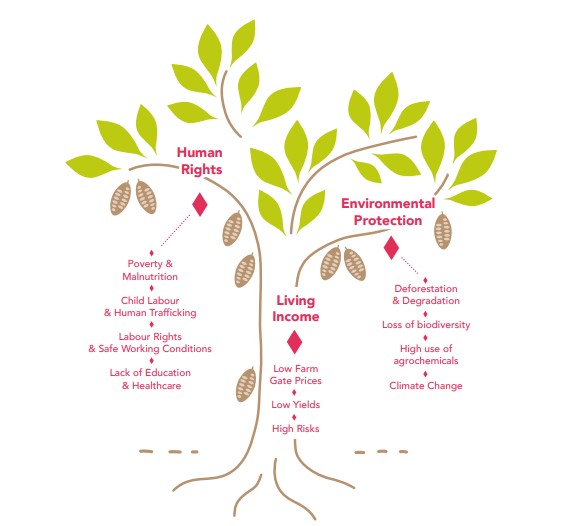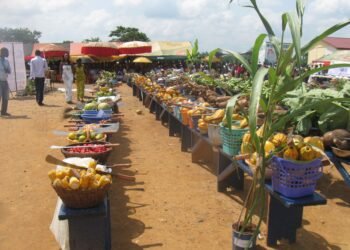The 2020 Cocoa Barometer Report, a biennial review of sustainability in the cocoa sector, has been released recently to provide an overview of the current sustainability developments in the cocoa sector and to highlight critical issues that are not receiving sufficient attention at present.
After two decades of failed interventions across the cocoa sector, cocoa farming communities are still battling the effects of poverty, child labour and deforestation. Rampant farmer poverty, extensive deforestation, human and labour rights violations including child labour, an over-dependency on pesticides; the challenges facing the cocoa sector remain as large as they have ever been. Poverty is still the daily reality for virtually all West African cocoa farmer families, child labour remains rife and old growth forests continue to be cleared to make way for cocoa production.
The 2020 Cocoa Barometer report published this week is a rallying call to action for all stakeholders such as governments, farmers, and civil society organizations to push forward and deliver on their promises to end deforestation and human rights abuses in cocoa supply chains. The report is published by the VOICE Network, with support from Solidaridad and many other organizations working towards a more sustainable cocoa sector.
“After two decades of voluntary initiatives that do not tackle the root causes, it is time for systemic change in the sector,” says Cocoa Barometer co-author Antonie C. Fountain of the VOICE Network.
“All the ingredients are there to make it work, but it is now time to move forward, and put in place ambitious, holistic and mandatory change, so that we can finally tackle the poverty, child labour and deforestation in cocoa,” he adds.
The report finds that the last two decades of interventions have failed for three main reasons while pointing out that it is vital that the sectors learns from its mistakes or risk repeating them.
The report reveals as the first reason that efforts have only been voluntary, not mandatory, meaning that across the sector, actors are failing to do what they need to. Within the multitude of government-driven covenants, national multi-stakeholder platforms and sector-wide collaborations, there are no penalties for non-compliance from companies or governments, nor enforcement to meet targets. Ironically, however, those at the bottom – cocoa farmers often living below the poverty line – do lose their sustainable cocoa certification if they do not comply. Whilst we’ve seen a significant increase in regulatory processes and commitments to due diligence, they are limited without accountability, transparency and equitable enforcement.
“Second, whilst bad farming practice has been addressed, the underlying problems that exacerbate extreme poverty – including low cocoa prices, lack of infrastructure and no transparency and accountability as you move higher in the supply chain – remain unchallenged and unsolved. There needs to be recognition that in its current form, the business model for high yields of cocoa means poverty for farmers and excessive profit for chocolate manufacturers,” the report points out.
Efforts to solve complex issues of injustice and unsustainability in the cocoa sector have not been inclusive or holistic enough, this, the report reveals as the third reason for the failure. Instead of inviting farmers and civic society to take a respected seat at the decision-making table, problems have been assessed using a top-down industry-based approach. This serves the interests of industry and government, rather than the producer farmers and their communities.
“We are at the crossroads” says Isaac Gyamfi, Managing Director for Solidaridad in West Africa. “Do we continue skirting around the issue of farmers wellbeing, or will all stakeholders together radically redesign value distribution and decision making in the cocoa sector? Let’s make space at the table and assure a living income, for both farmers and workers”.





















